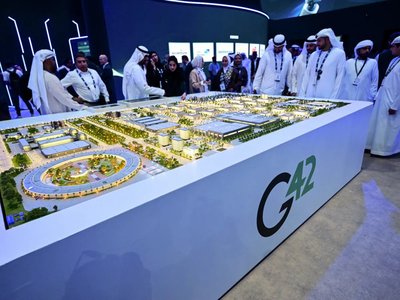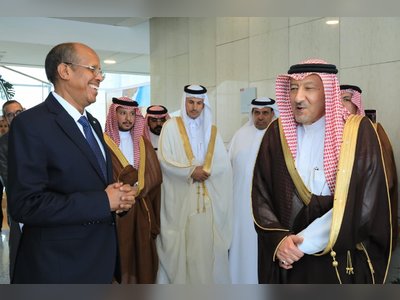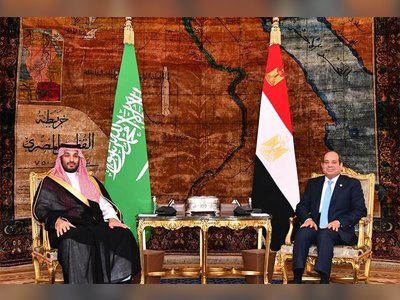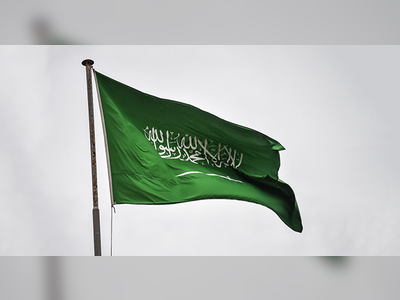
Egypt and the United States: A Tale of Two Authoritarians
Having an American president who has engaged in numerous instances of manipulation of power for over three and half years, which may include
Having an American president who has engaged in numerous instances of manipulation of power for over three and half years, which may include the possibility of ruining the 2020 presidential election by refusing to accept its results should he lose, prompts us to ponder whether the United States is a truly democratic nation that honors its “checks and balances” ruling system – or if President Trump’s clear abuse of power calls into question the very essence of United States democracy.
“Democracy Dies in Darkness”, the Washington Post slogan, is well-understood by President Abdel Fatah Al-Sisi of Egypt who instantly and deliberately plunged his entire nation into total darkness after he assumed power in 2014, convinced that his vision alone is enough to lead the country!
Al-Sisi has successfully depoliticized Egyptian citizens and, more noteworthy, intensified polarization in Egyptian society by maintaining a cruel friction between his supporters and opponents, authorizing him to further expand his iron-fist rule!
In contrast, the United States is a truly enlightened nation; the U.S. Constitution guarantees freedom of expression and assembly, along with the casting of ballots. However, politics is no different from any other given industry; naturally, the clear majority of the population doesn’t grasp its essence and can be misguided easily. Meanwhile, the commendable attribute of empowering all citizens to cast their votes can lead to bringing an unfit president to power as a result of citizens’ “innocent ignorance”!
Polarizing American society while offering certain economic privileges to given segments of the population has enabled President Trump to sustain core groups of loyal supporters who value their personal gains over the genuine advancement of their nation.
Likewise, sidelining the entire society and expanding political prosecution have served to strengthen Al-Sisi’s grip on power in Egypt. While each president has applied a different means of polarization (“Al Sisi’s harsh stick and Trump’s illusionary carrot”), both have realized identical ends that serve their political interests at the expense of their respective nations.
“I am building presidential palaces and I will build more” was Al Sisi’s response to past accusations demanding to know why a poor and significantly indebted nation would be constructing presidential palaces when it already has countless fabulous palaces – outnumbering many advanced, and even wealthy, nations. A clear downside of autocracy is its inadequacy in outlaying government expenditure.
“I have to see. Look. I have to see. No, I’m not just going to say yes”, answered Trump when asked whether he would acknowledge losing the presidential election. In fact, the question in itself over-empowers a civil servant with a despotic authority.
Any president who remains in the Oval Office beyond his tenure should receive the same treatment as an American citizen who illegally occupies state property; the security apparatus forces him to leave and he is subsequently tried in court!
The instinctive mishandling of power by both presidents has created a special bond between them, highlighted by the tyrannical practices they have in common as illustrated by the unnecessary upscaling of military institutions, the empowering of security apparatus to deal with lawbreakers or political opponents offensively and the development of notions that clearly serve the rulers’ powers instead of their nations.
A vital downside of Egypt’s absolute autocracy is the barring of critics from voicing their opinions; as a result, the ruler lives in a completely illusory world, believing that his fellow citizens wholeheartedly admire his policies.
In the United States on the other hand, freedom of expression is unimpaired and political elites are constituted of well-educated citizens – nevertheless, the U.S. president is empowered enough to ignore his citizens’ voices and even to make fun of them!
Moreover, the United States is naturally a power-driven nation that often prefers to capitalize on its military power rather than diplomacy! Its yearly military expenditure exceeds USD 700 billion, accounting for more than one-third of the world’s total military expenditure; a substantial budget allocation that is certainly not needed to protect U.S. borders, hasn’t helped the U.S. to successfully dominate the world, nor made American citizens at large proud of this false supremacy!
Since the 1952 Free Officers Movement until this moment, Egypt has been mostly ruled by military officers; however, Al-Sisi has explicitly extended their power to govern the entire nation.
While Egypt’s relationship with the United States has been going through the usual ups and downs, a steady bond has been formed between the military institutions of both countries, honored by USD 1.3 billion annually in U.S. military aid to Egypt since the signing of the 1979 Camp David Accords between Egypt and Israel to the present time.
Some may argue that Egyptians often seek political asylum in the United Sates; therefore, there is no comparison between the clear autocracy of Egypt and the temporary “decline” of democracy in the United States.
Certainly, the status of democracy in the U.S. is more advanced than it is in Egypt. However, the U.S. constrains its citizens, offering them personal freedom space that may be utilized to the maximum – yet Americans are not empowered enough to influence national policy, which remains exclusively in the hands of the president and political elites.
“Catch me if you can,” describes the present status of U.S. democracy, best illustrated by Trump’s bullying politics. Democracy should not be viewed as an occasional event that only happens during elections, but as a mechanism that is meant to progressively advance citizens’ quality of life, equally and explicitly.
In fact, if we balance American citizens’ superior literacy and the constitutional rights they enjoy against Egypt’s deprivation in both areas, we may come to realize that the democracy practiced in the United States today is almost equivalent to that practiced in Egypt.
“Democracy Dies in Darkness”, the Washington Post slogan, is well-understood by President Abdel Fatah Al-Sisi of Egypt who instantly and deliberately plunged his entire nation into total darkness after he assumed power in 2014, convinced that his vision alone is enough to lead the country!
Al-Sisi has successfully depoliticized Egyptian citizens and, more noteworthy, intensified polarization in Egyptian society by maintaining a cruel friction between his supporters and opponents, authorizing him to further expand his iron-fist rule!
In contrast, the United States is a truly enlightened nation; the U.S. Constitution guarantees freedom of expression and assembly, along with the casting of ballots. However, politics is no different from any other given industry; naturally, the clear majority of the population doesn’t grasp its essence and can be misguided easily. Meanwhile, the commendable attribute of empowering all citizens to cast their votes can lead to bringing an unfit president to power as a result of citizens’ “innocent ignorance”!
Polarizing American society while offering certain economic privileges to given segments of the population has enabled President Trump to sustain core groups of loyal supporters who value their personal gains over the genuine advancement of their nation.
Likewise, sidelining the entire society and expanding political prosecution have served to strengthen Al-Sisi’s grip on power in Egypt. While each president has applied a different means of polarization (“Al Sisi’s harsh stick and Trump’s illusionary carrot”), both have realized identical ends that serve their political interests at the expense of their respective nations.
“I am building presidential palaces and I will build more” was Al Sisi’s response to past accusations demanding to know why a poor and significantly indebted nation would be constructing presidential palaces when it already has countless fabulous palaces – outnumbering many advanced, and even wealthy, nations. A clear downside of autocracy is its inadequacy in outlaying government expenditure.
“I have to see. Look. I have to see. No, I’m not just going to say yes”, answered Trump when asked whether he would acknowledge losing the presidential election. In fact, the question in itself over-empowers a civil servant with a despotic authority.
Any president who remains in the Oval Office beyond his tenure should receive the same treatment as an American citizen who illegally occupies state property; the security apparatus forces him to leave and he is subsequently tried in court!
The instinctive mishandling of power by both presidents has created a special bond between them, highlighted by the tyrannical practices they have in common as illustrated by the unnecessary upscaling of military institutions, the empowering of security apparatus to deal with lawbreakers or political opponents offensively and the development of notions that clearly serve the rulers’ powers instead of their nations.
A vital downside of Egypt’s absolute autocracy is the barring of critics from voicing their opinions; as a result, the ruler lives in a completely illusory world, believing that his fellow citizens wholeheartedly admire his policies.
In the United States on the other hand, freedom of expression is unimpaired and political elites are constituted of well-educated citizens – nevertheless, the U.S. president is empowered enough to ignore his citizens’ voices and even to make fun of them!
Moreover, the United States is naturally a power-driven nation that often prefers to capitalize on its military power rather than diplomacy! Its yearly military expenditure exceeds USD 700 billion, accounting for more than one-third of the world’s total military expenditure; a substantial budget allocation that is certainly not needed to protect U.S. borders, hasn’t helped the U.S. to successfully dominate the world, nor made American citizens at large proud of this false supremacy!
Since the 1952 Free Officers Movement until this moment, Egypt has been mostly ruled by military officers; however, Al-Sisi has explicitly extended their power to govern the entire nation.
While Egypt’s relationship with the United States has been going through the usual ups and downs, a steady bond has been formed between the military institutions of both countries, honored by USD 1.3 billion annually in U.S. military aid to Egypt since the signing of the 1979 Camp David Accords between Egypt and Israel to the present time.
Some may argue that Egyptians often seek political asylum in the United Sates; therefore, there is no comparison between the clear autocracy of Egypt and the temporary “decline” of democracy in the United States.
Certainly, the status of democracy in the U.S. is more advanced than it is in Egypt. However, the U.S. constrains its citizens, offering them personal freedom space that may be utilized to the maximum – yet Americans are not empowered enough to influence national policy, which remains exclusively in the hands of the president and political elites.
“Catch me if you can,” describes the present status of U.S. democracy, best illustrated by Trump’s bullying politics. Democracy should not be viewed as an occasional event that only happens during elections, but as a mechanism that is meant to progressively advance citizens’ quality of life, equally and explicitly.
In fact, if we balance American citizens’ superior literacy and the constitutional rights they enjoy against Egypt’s deprivation in both areas, we may come to realize that the democracy practiced in the United States today is almost equivalent to that practiced in Egypt.











